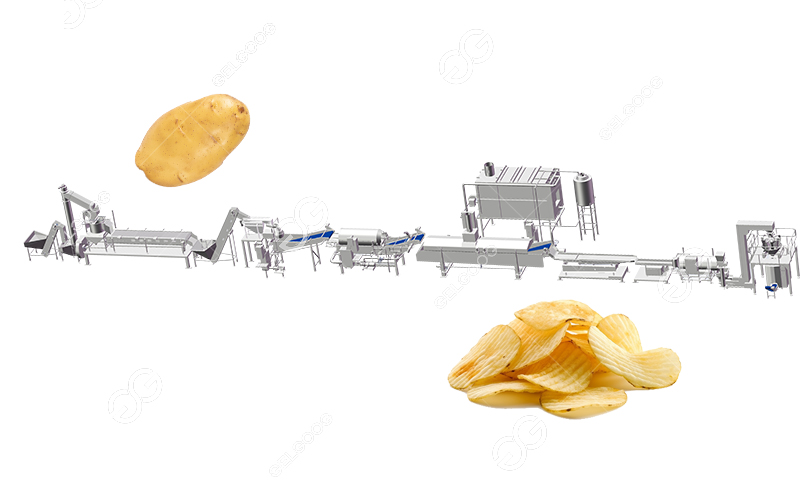In today’s fast-paced world, snacks have become a staple in people’s lives, providing quick bursts of energy and satisfaction. Among these, potato chips hold a special place as a timeless favorite. With their crispy texture and flavorful seasoning, potato chips have a universal appeal that transcends borders and cultures. If you’re passionate about bringing this beloved snack to the masses, starting a potato chips production business could be a lucrative venture. Here’s a potato chips production business plan.
Market analysis
Before delving into the production process, it’s crucial to understand the market landscape. Conduct thorough research to identify key trends, consumer preferences, and competitors in the potato chips industry. Analyze factors such as regional demand, flavor preferences, and packaging trends to tailor your offerings accordingly. Additionally, assess distribution channels and potential partnerships with retailers to ensure widespread availability of your products.
Unique selling proposition
In a crowded market, differentiation is key to success. Define your unique selling proposition—what sets your potato chips apart from the competition? Whether it’s innovative flavors, premium ingredients, or sustainable packaging, emphasize the distinctive qualities that will capture consumers’ attention and drive demand for your brand.
Production process
Next, outline the production process for manufacturing high-quality potato chips. This includes sourcing fresh potatoes from reliable suppliers, selecting the appropriate varieties for optimal flavor and texture, and investing in state-of-the-art equipment for potato chips production. Pay meticulous attention to food safety standards and quality control measures to ensure consistency and adherence to regulatory requirements.
Supply chain management
Efficient supply chain management is essential for seamless operations and timely delivery of products. Establish strong relationships with potato farmers, distributors, and packaging suppliers to streamline procurement and minimize costs. Implement inventory management systems to monitor stock levels and prevent shortages or wastage.
Marketing and branding
Building a strong brand presence is vital for attracting customers and fostering brand loyalty. Develop a comprehensive marketing strategy that encompasses digital and traditional channels, including social media, influencer partnerships, and targeted advertising campaigns. Create engaging content that highlights your brand story, values, and commitment to quality, resonating with consumers on an emotional level.
Distribution and sales
Choose distribution channels that align with your target market and business objectives. Explore options such as direct sales to retailers, online platforms, vending machines, and partnerships with foodservice establishments. Invest in robust distribution networks and logistics capabilities to ensure prompt delivery and availability of your products across multiple touchpoints.
Financial projections
Prepare detailed financial projections to assess the feasibility and profitability of your potato chips production business. Estimate startup costs, including equipment, raw materials, labor, and marketing expenses. Forecast sales revenue based on market demand and pricing strategies, taking into account seasonal fluctuations and potential growth opportunities. Monitor key performance indicators such as gross margin, net profit, and return on investment to track the financial health of your business.
Sustainability and corporate social responsibility
Incorporate sustainability practices and csr initiatives into your business model to minimize environmental impact and contribute to social welfare. Explore eco-friendly packaging alternatives, energy-efficient production methods, and ethical sourcing practices to reduce carbon footprint and promote responsible consumption. Engage with local communities and support initiatives that align with your values, fostering goodwill and positive brand associations.
Launching a potato chips production business requires careful planning, strategic execution, and unwavering commitment to quality and innovation. By leveraging market insights, embracing creativity, and prioritizing customer satisfaction, you can carve out a niche in the competitive snack industry and embark on a journey to crisp success.

